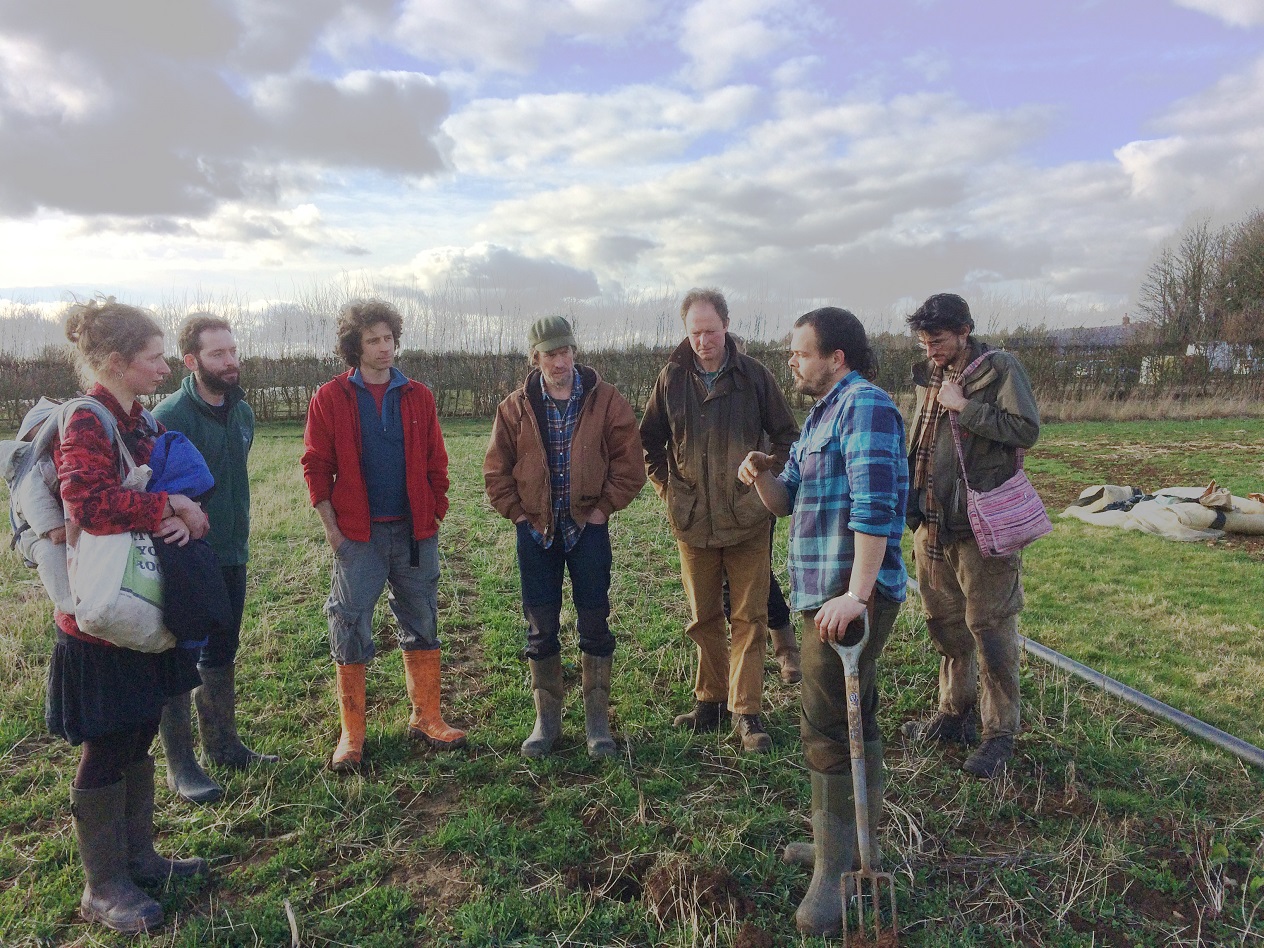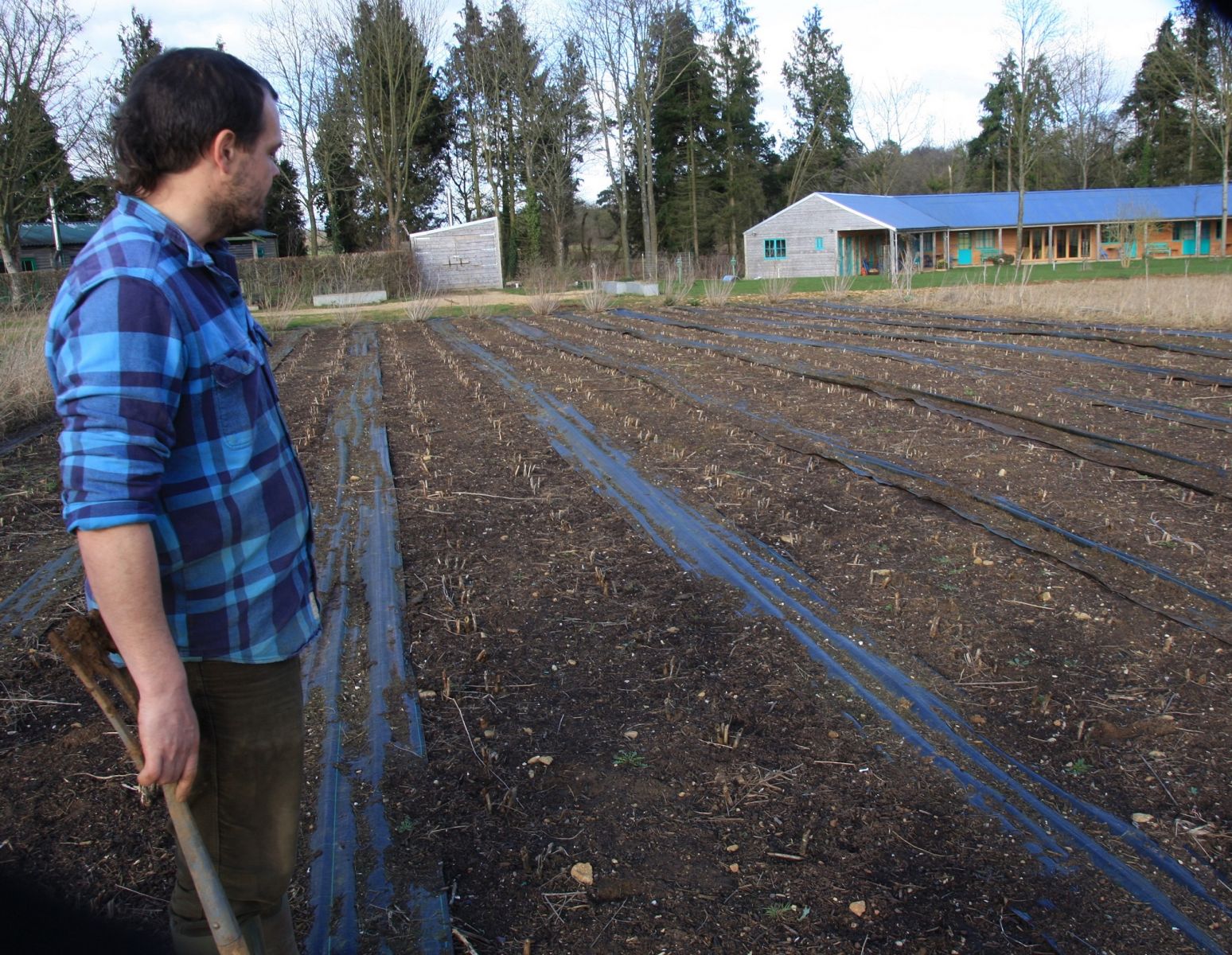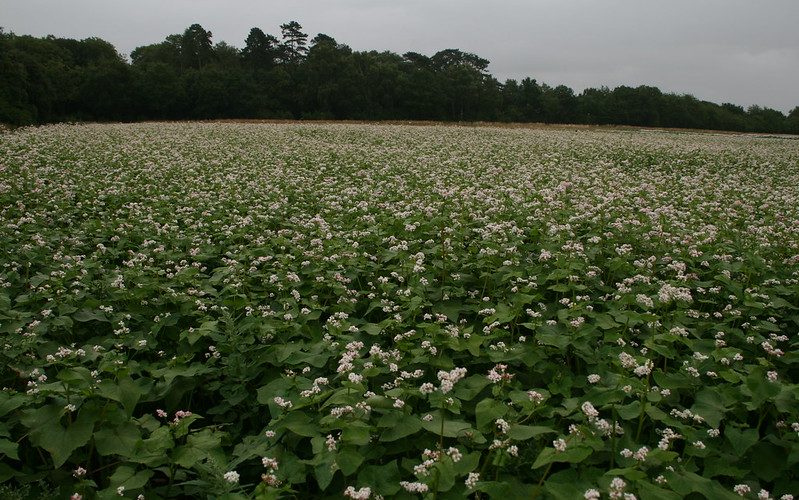Bucking the trend: an alternative approach to couch control
How can we manage pernicious perennial weeds without recourse to agrochemicals, or cultivations that can damage soil structure and soil biology? For organic farmers that has for long been a thorny dilemma. Annual weeds are relatively easy to control through stale seedbeds, brush-weeders and laser-guided hoes, but for perennial weeds the blunt instrument of the prosaically named ‘bastard fallow’ often seems to be the only option to keep weeds like couch grass in check. Replacing herbicides with diesel-powered cultivations is not a sustainable long-term solution. Pigs can be used and can be effective but may also cause soil structural damage if weather conditions are either too dry or too wet, particularly on heavier soil types.
Exploring buckwheat as a cover crop
For horticultural growers especially, rotations are key. Competitive crops such as potatoes and brassicas can keep couch in check, but if your customers demand alliums or root crops then the door is open for couch to run and run. So, what if you could introduce a cover crop into your rotation that would mobilise phosphorus in your soil and positively benefit soil health whilst also reducing couch grass to manageable proportions? That is the potential that buckwheat has – which is why many growers have come together through an Organic Growers Alliance / Land Workers’ Alliance Innovative Farmers’ field lab to try it out on their own holdings.
Andy Dibben at Abbey Home Farm near Cirencester came forward with the idea for the field lab after observing how clean the land was from couch and other weeds following buckwheat being grown as a farm crop. Couch is well established in some areas of the rotation at Abbey Home Farm and can have significant negative effects on crop yields. Their current method of control is by bastard fallowing, however this has had varying levels of success and causes a lot of damage to soil structure. It also needs dry weather conditions to be effective, which can’t be guaranteed in our climate!
Field lab trials
A group of growers met in February at Abbey Home Farm, all having in common a problem with and the desire to find a better solution.

The group pictured with Andy Dibben
We went out to see Andy’s asparagus patch, still clean of weeds, three years after buckwheat had been grown on the field! Inspired by that, discussion turned to what trials could be carried out to verify the use of buckwheat for couch control. It was clear amongst the group that the purpose of any trials would be to establish whether growing buckwheat could be effective in suppressing couch, and not to determine the mechanism e.g. allelopathy (the inhibition of weeds by another plant through the production of allelochemicals) or competition.

Andy Dibben with clean asparagus patch
The first year will be a proof of concept year. All the growers have different situations and space available for trials, different kit and rotations, so it is clear that we can’t standardise everything across all farms. All farms will do a baseline sampling to determine the levels of couch before trials begin. They will then grow a buckwheat crop, either on its own or as part of a mixture that they normally grow (e.g. instead of mustard in Cotswold’s Summer Quick Fix). The control will be their normal farm practice; in most cases a summer bastard fallow. At Abbey Home Farm, the plan is to grow buckwheat with crimson /white clover after brassicas and before alliums in the rotation. Couch levels will be assessed again at the end of the trial and we will also look at yields of subsequent crops.
One important factor in different strategies for couch control, is of course cost. Buckwheat seed is expensive and growers will only be persuaded to adopt it if there are positive benefits from weed control and/or soil health. We plan to compare the costs of the different treatments. If you are interested in taking part in the trials please contact Phil Sumption.
Phil Sumption is Research Communication Officer in the Organic Research Centre.
Editor’s note:
For more information on allelopathy and couch control, have a look at the Garden Organic (formerly HDRA) leaflets: ‘Allelopathy
– a practical weed management tool?‘ and ‘Common Couch Management in Organic Systems.’ Also see ‘Fallowing in Organic Systems
– a last resort?‘
Here are some other useful resources Phil recommends:
- Quackgrass (Elytrigia Repens) Control methods in organic agriculture
- Can cover crops aid weed suppression in horticultural crops?
- Weed control in ornamentals, fruit and vegetable crops – maintaining capability to devise sustainable weed control strategies


